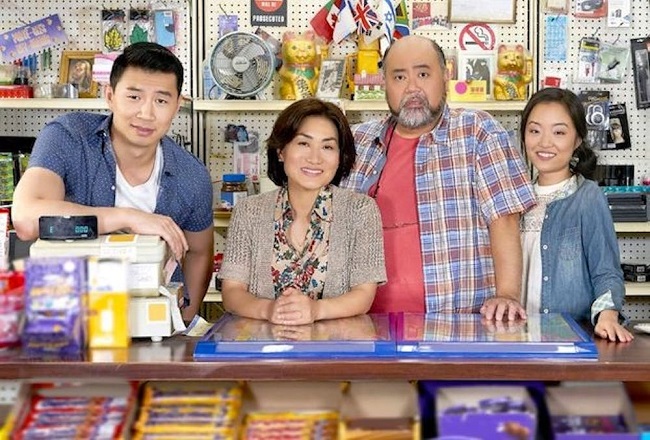The award-winning Canadian sitcom says a lot about Korean food culture even though it doesn’t go into great detail.
Despite the show’s critical success in its fifth and final season, two of the show’s key Asian Canadian stars have now spoken out about racism and issues with off-screen lack of representation, which is a disheartening turn of events.

Based on a play by Ins Choi and Kevin White, “Kim’s Convenience” tells the story of a Korean Canadian family who operates a convenience shop and delves into the absurd, mundane, and occasionally profound aspects of their lives.
To Understand Why, Consider Recent Discoveries Made by Two of the Show’s Lead Actors of Asian Descent:
representation isn’t only about what we see onscreen; it must also encompass what happens offscreen and who sits in positions of power.
Simu Liu, who plays eldest son Jung Kim on “Kim’s Convenience,” detailed examples of racism in a lengthy Facebook post.
His complaints included racist storylines, “overwhelmingly white” writers and producers, a lack of opportunities for the show’s Asian actors to grow or influence and shape the show’s direction, and “horsepoop” pay for the predominantly Asian actors compared with the cast of fellow CBC show “Schitt’s Creek.”
Liu further pointed out that once the show ended, the only white actor was offered a spinoff series while the rest of the Asian cast was passed over.
Cast
The cast included “several of us who were trained screenwriters with thoughts and ideas that only grew more seasoned with time,” Liu said. But no one ever really helped us get through those closed walls.
Jean Yoon, who played Liu’s mother on the show, also stepped up this week, tweeting that “overtly racist” stories were written into the fifth season’s scripts. Yoon, echoing Liu, pointed out that Choi, co-creator of “Kim’s Convenience,” had a “diminished presence on set” as the series went on, while White remained in the role of showrunner.
The lack of Asian female, especially Korean writers in the writers room of Kims made my life VERY DIFFICULT & the experience of working on the show difficult,” Yoon stated in a tweet in response to a now-deleted comment criticising Liu’s Facebook post.
The admissions made by the cast members about the lack of representation or real support for its Asian cast come at a time when there is a growing conversation about anti-Asian prejudice and violence.
However, unfortunately, their situation is common among shows and initiatives that feature varied on-screen representation without the off-screen diversity to back them up or provide growth opportunities and support to the people who are the faces of these ventures.
Example of This Terrible Reality is the British Spy Thriller Series “Killing Eve,”
One recent example of this terrible reality is the British spy thriller series “Killing Eve,” which stars Korean-Canadian Sandra Oh but was criticised last year for having a mostly white writers room.
Especially in the wake of “Them,” an Amazon anthology that features a predominantly Black cast in its first season and explores the extensive history of racial terrorism in the United States, some have questioned the extent to which diversity on or off-screen can meaningfully “fix” racism on its own.
The film “Them” has been roundly attacked for catering to white audiences who can be startled by such vivid and demeaning displays of racist cruelty and for serving as racist trauma or torture “porn” for the white gaze.
A writer for Vulture referred to the show as “pure degradation porn” and said, “It is a striking refutation to Hollywood’s notion that representation behind and in front of the camera can heal its underlying bigotry.”
Last Words
Simply including people of colour and other oppressed groups in your work is not enough to combat systematic racism. That was common knowledge, anyway.
New information from the “Kim’s Convenience” crew has shed light on this problem, as have other disheartening examples of unequal on- and off-screen representation and stories about people of colour that were produced for white audiences.
There are several facets to the problem of representation, including significant changes in the balance of power onscreen, behind-the-scenes, and possibly even in the focus of the audience.
















